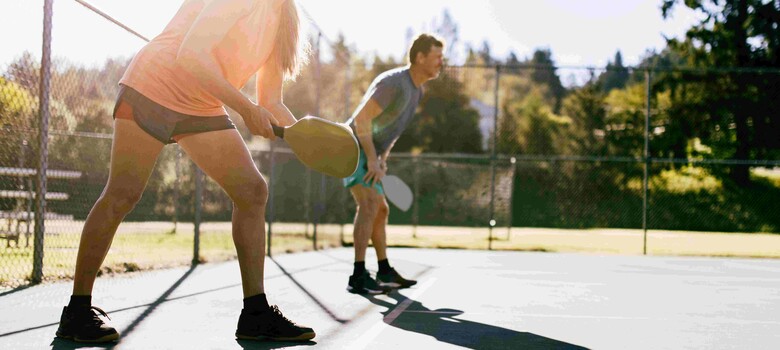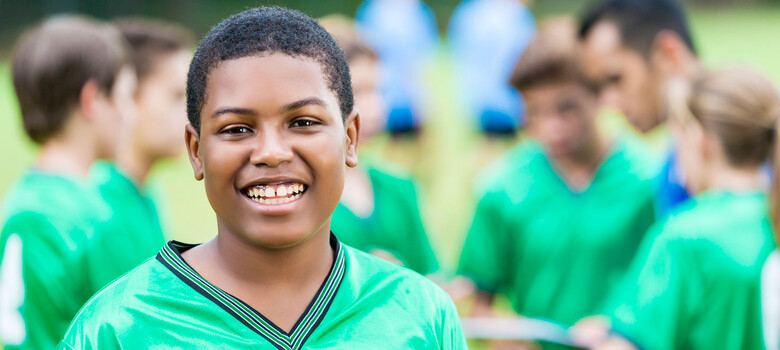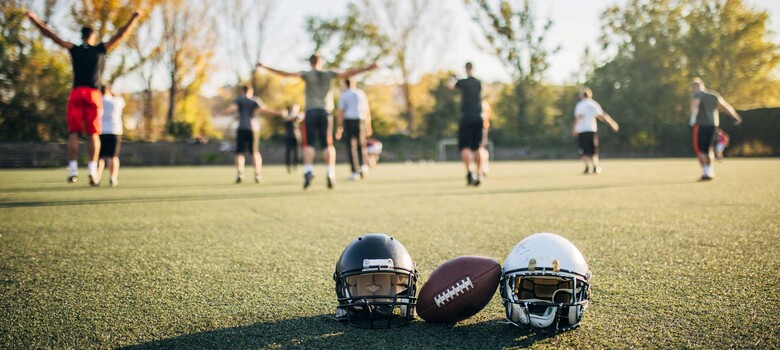When Young Athletes Need Sports Injury Care
Know What to Expect at the Visit

Dr. Jocelyn Wittstein works with a young athlete during a sports medicine exam.
When young athletes get hurt, the best option for care is often an orthopaedic doctor who specializes in sports-related injuries. It is important to know what you and your child should expect from an sports medicine evaluation. The 2017 criminal conviction of a USA Gymnastics team doctor who used his position to abuse children and teens for decades raised concerns among parents and athletes regarding safety of injured adolescent athletes.
Sports Medicine Experts Can Be Essential to Injury Recovery
Parents might question the value and appropriateness of a sports medicine visit, but Duke Health orthopaedic surgeon Jocelyn Wittstein, MD, said qualified, dedicated sports medicine experts can be essential to injury recovery and top performance. Wittstein should know. She was a high school and collegiate gymnast, a mom who has raised several adolescent athletes of her own, and an orthopaedic surgeon specializing in sports medicine. She has a particular interest in working with young gymnasts.
Helping Injured Young Athletes Stay Engaged in Their Sport
Q: How do your life experiences as an athlete, physician, and mom influence the care you provide to young athletes?
A: A lot of my patients and their parents say they came to see me because they were looking for someone who listened and understood where they were coming from. It’s important, as an orthopaedist, to understand the mechanical problem that a young athlete might be experiencing with an injury, and I can certainly address that as a physician.
For many young people, and I think an increasing number of girls, their identity is strongly tied to their sport. As an athlete and now a mother of athletes, I try to recommend ways to keep them engaged as much for their physical recovery as for their emotional well-being.
I want to provide young athletes with a way they can integrate their rehabilitation with their team’s workouts. So even if they’re not able to play games or fully practice, oftentimes they can participate in some of the team conditioning and enhance skill development through observation, or even hone very specific skills they would not otherwise be able to devote so much attention to. This helps the young athlete maintain their connection to their teammates and their athletic identity, and is critical to their resiliency in the face of injury.
What to Expect During a Sports Medicine Exam
Q: What should parents keep in mind when their young athlete needs a sports medicine exam?
A: What came to light following the scandal involving USA Gymnastics and theconviction of Dr. Larry Nassar in 2017 was that athletes and parents were led to believe that inappropriate and abusive behavior was a necessary and appropriate treatment for sports-related injuries. Parents and athletes should understand what they should expect in a sports medicine visit. Here are my guidelines:
- There is no reason and no legitimate therapies that call for a sports medicine physician to do an internal pelvic exam.
- There is rarely a reason for a sports medicine physician to do a breast exam. This would be an exception for a primary care doctor who specializes in sports medicine as part of an annual wellness physical. A breast exam should not be part of a visit to address a musculoskeletal complaint.
- A sports medicine doctor might need to conduct a hands-on exam near sensitive body parts to diagnose and treat injuries to the pelvis or groin area. These physical exams should be discussed before, during, and after. A thorough musculoskeletal exam would include palpation of the bony prominences, muscles, and tendons of the pelvis but should not include any touching of the genitalia or internal exam.
- Parents should always be welcome in the exam room, the exception being if the child/patient requests that they leave.
- If parents or patients have any questions or concerns, they should raise them immediately.




